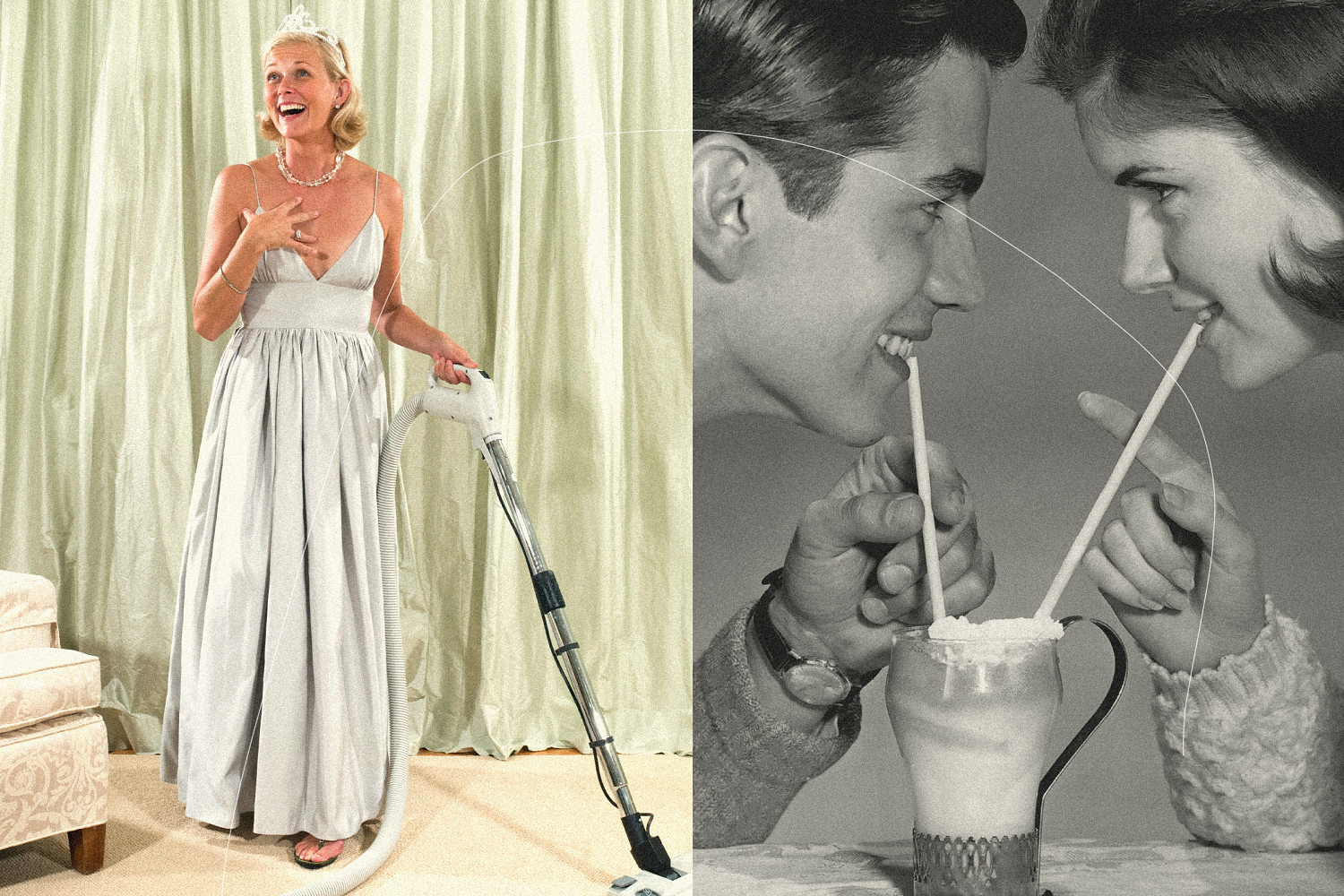

Dating coach Karla Elia tells women not to go out with a man who is “nice” or who “treats you right,” but one who can “afford” them.
Her advice, while highly criticized by some who have seen her videos, has dominated a pocket of the internet that depicts heterosexual romance as a deal between men and women, in which women are receivers and men are providers.
The 24-year-old is part of a community of women who have gained popularity — and notoriety — online for their espousal of what can feel like antiquated dating guidance.
“I see the dating scene and relationships as a business, because it is,” said Elia, who has more than 1 million followers on TikTok. “A lot of people don’t like to admit that relationships are transactional, but they are.”
Social media has become a hub for dating advice as people have normalized confiding in internet strangers over everything from first date horror stories to the latest relationship tests. It’s given rise to its own niches of content from self-proclaimed dating experts building followings around the advice they preach.
Some of the most popular of these advice gurus are encouraging women to turn dating into a game of strategy. To win? Attract a man who’s willing to pay all the bills, spoil his partner with gifts and fund a lavish lifestyle.
A man would never ask his dream girl to split a bill, some of these influencers have said in their videos. Women should see themselves as a “prize,” something not easily won over, others said in videos. And self-described financial adviser SheraSeven, who’s built a cult-like following teaching women how to pursue wealthy men, has said a man who wants a woman to bring something to the table can “go to IHOP” instead.
Many within this category of dating influencers also sell coaching sessions, courses and e-books, all touting tactics to help their audience successfully attract a man with a “provider” mindset.
Cécile Simmons, a researcher studying what she described as “anti-feminist influencers,” said she doesn’t see the rise in this type of content as that surprising.
She said it may be a reaction to ideas commonly shared in the “manosphere,” a network of online spaces where men often talk about women in terms of “sexual market value” and trade tips on how to become a “high-value man” or “alpha male.”
“In these really misogynistic communities, there’s this idea that all women want is a rich guy. The incels and all these communities hate women for that,” Simmons said. “So then you have some women reclaiming that, saying, yeah, I want a rich guy and I’m entitled to that — a bit like the manosphere guys would say they’re entitled to an attractive woman.”
Still, some who promote the dynamic said it works because women inherently contribute different things to a relationship than their male counterparts.
“I don’t believe that men and women are equal apart from the fact that we should have basic human rights and that we should be able to get paid the same wage working in the same position,” said Abigail Siu, 30, who shares what she described as “elevated dating advice” on Instagram. “But apart from that, we really are different biologically, physically and emotionally.”
Siu, one of the newer creators in the space, has told her followers that men are natural-born hunters who want to “conquer” them. That’s why women shouldn’t be too easy to chase, she said, or accept “low-effort” dates like getting coffee.
The movement has developed its own shorthand meant to quickly convey its values: The “princess treatment” is what women should demand of men, while a “high-value” woman is well groomed and self-assured. “Feminine energy” (being nurturing, wanting a slower pace of life) is a must, while “masculine energy” (such as splitting the bill) is to be avoided.
Those interviewed for the article said much of their dating outlook is shaped by an exasperation with endless hustle culture and ever-rising costs of living. Many said they are tired of the kind of lean-in, girlboss feminism pushed to millennials in past decades, which they said has led to nothing but burnout and wage stagnation.
“It’s going to sound like putting people into gender roles, but whatever. I think that at least the women I help, we’re waking up and seeing that we have been in survival mode this entire time,” Elia said. “Our nervous system is wrecked from having to do so many things all at once just trying to survive and pay our own bills.”
While some women — such as those in dating advice forums like r/RedPillWomen on Reddit — genuinely share ideas that parallel those in the manosphere, others have said online that they just want to be provided for without the strings of traditional conservative values.
It’s a movement that echoes the “traditional wife” (or “tradwife,” as the internet has coined it) lifestyles that have drawn renewed intrigue and criticism in recent years. Videos of self-described tradwives typically depict these women as committing themselves to housework and childrearing while being subservient to their husbands.
But some researchers said women seeking “provider” men are distinctly different from tradwives, who often pride themselves on their frugality and self-sufficiency. Instead, they have no qualms about pursuing luxury living or about using their partner’s financial support to free up their own time and money without the stress of a daily grind.
You could position it almost on a continuum in the sense that you’ve got super consumerist, stay-at-home girlfriend types. And then you’ve got your apron-wearing traditional 1950s type tradwives.
Sophia West, researcher
“You could position it almost on a continuum in the sense that you’ve got super consumerist, stay-at-home girlfriend types,” said Sophia West, a researcher who studies how social media propels online subcultures. “And then you’ve got your apron-wearing traditional 1950s type tradwives.”
Though many of these dating coaches push the idea of securing financial stability through marriage, some also said they’re careful not to become fully reliant on a man just because he’s covering all the bills. Instead, they said, it’s important for women to either build a separate income stream in their spare time or to save and invest their allowances.
“I think the major misconception is that people think, ‘Oh, if you’re getting provided for, it means that you’re financially dependent on your man.’ That is so untrue,” Siu said. “Being provided for means you have more resources because you get to keep all your money and you can invest them. That’s actually making you financially more independent if anything happens.”
Simmons, the researcher, said these influencers are selling a lifestyle that offers a tantalizing alternative for women aiming to escape a life of dead-end 9-to-5s, especially in what they see as a bleak economic climate. And many are tapping into their resentment against a brand of feminism that hasn’t felt inclusive, or that simply hasn’t fulfilled its promise.
“But I’m not sure that turning yourself into a project to seduce a man is empowering at all,” Simmons said. “It just provides a kind of quick and easy solution to a few women, but it doesn’t liberate women as a whole.”
 Latest Breaking News Online News Portal
Latest Breaking News Online News Portal





